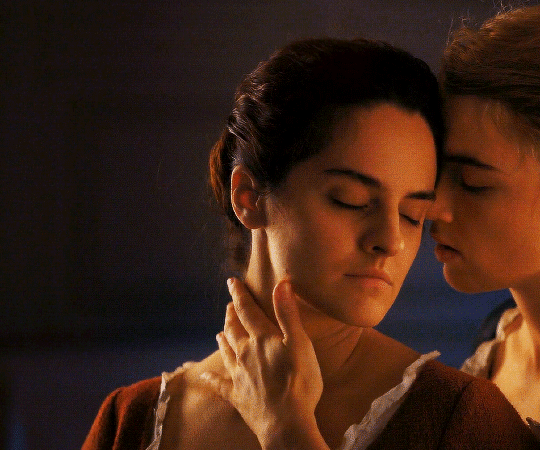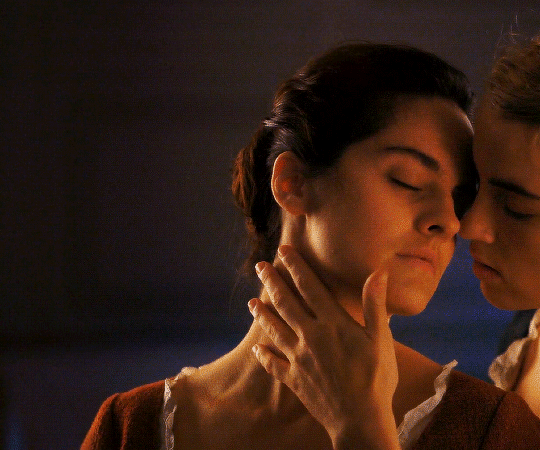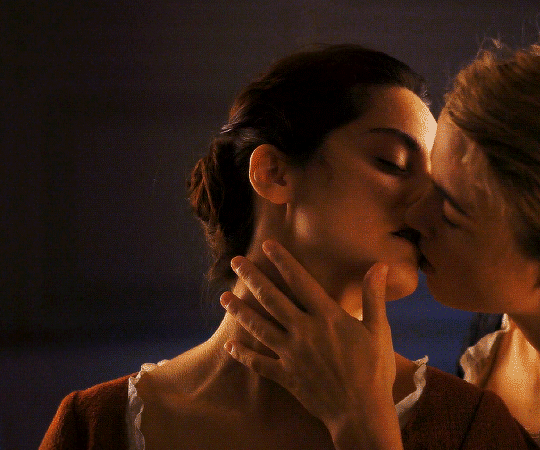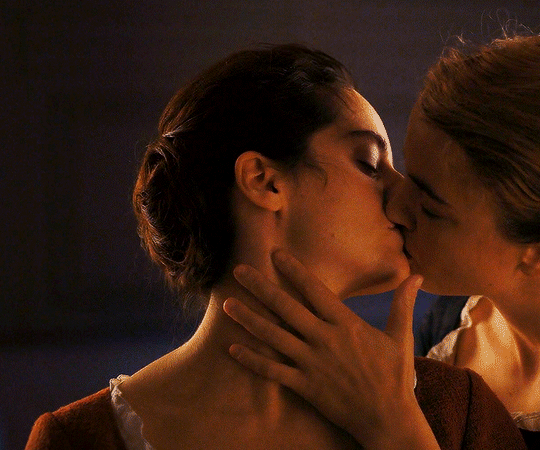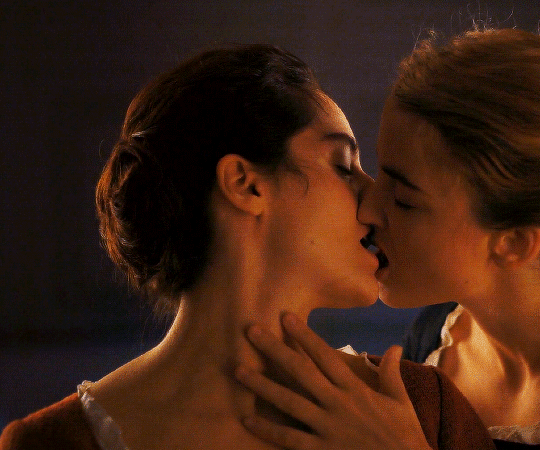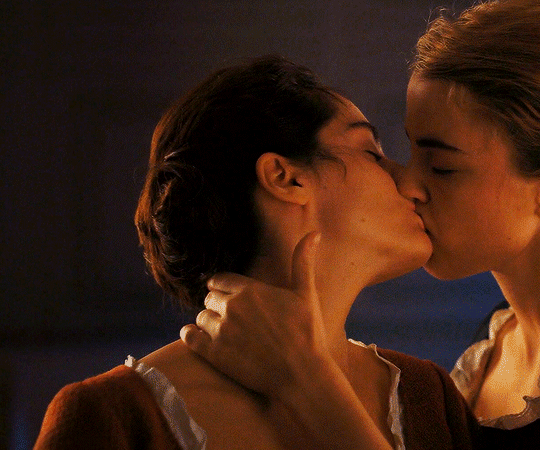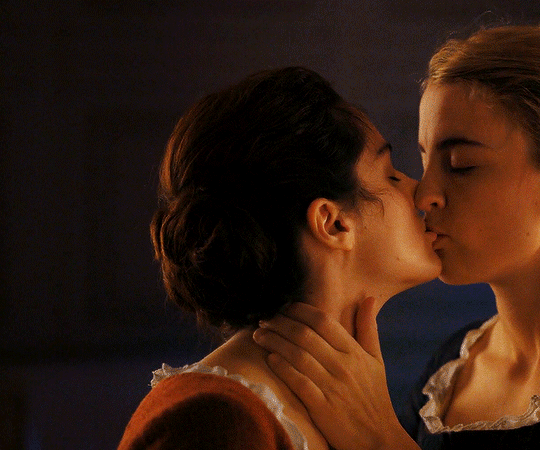Photo

a colour/composition study via perkins!vert’s confused boner
125 notes
·
View notes
Audio
Андрей Петров - Вальс из к/ф Берегись автомобиля
so cute :3
34 notes
·
View notes
Text
the inherent eroticism of wearing a dagger strapped to your upper thigh
106K notes
·
View notes
Photo


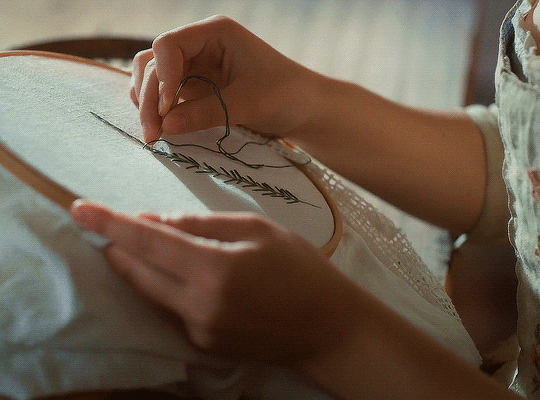


Portrait of a Lady on Fire (2019) | dir. Céline Sciamma
29K notes
·
View notes
Photo

ab. 1785 Anton Graff - Baroness von Cerrini di Monte Varchi
(Art Gallery of South Australia)
305 notes
·
View notes
Text

“Arriving at each new city, the traveller finds again a past of her that she did not know she had: the foreignness of what you no longer are or no longer possess lies in wait for you in foreign, unpossessed places.”
Italo Calvino, Invisible Cities
194 notes
·
View notes
Photo

FRENCH GAME BOARD, 1791. ‘Game of the French Revolution,’ created in 1791. The first player to go from the seizure of the Bastille (step 1) to the Assemblee Nationale (step 63) is the winner.
468 notes
·
View notes
Note
“Oh! to love a woman! to be a priest! to be hated! […] to have nothing to offer her but a priest's dirty cassock, which will inspire her with fear and disgust!" How do you think, what kind of person would Frollo be if he weren’t a priest? Would he be happier and not so mad? Would he have any chance to win Esmeraldas love?
That is quite the multi-faceted question.
I think, to discover that, we have to regard the underlying character traits of Claude Frollo; that may, however, be difficult to discern completely, considering that he was bound for the priesthood since childhood, and, therefore, has been influenced always by the teachings and consciousness thitherto ascribed.
There is present, a however, a certain quote by Victor Hugo upon which we can base the assertion that Claude was, by essence of his own being, naturally introverted, studious.
‘C’etait d’ailleurs un enfant triste, grave, sérieux, qui étudiait ardemment et apprenait vite; il ne jetait pas grand cri dans les récréations, se mêlait peu aux bacchanales de la rue du Fouarre, ne savait ce que c’était que dare alapas et capillos laniare, et n’avait fait aucune figure dans cette mutinerie de 1463,” … “c’était Claude Frollo armé de son écritoire de corne, mâchant sa plume, griffonnant sur son genou usé, et l’hiver, soufflant dans ses doigts.”
He had expressed even in boyhood a rapt fascination with learning, with knowledge itself; it was the first of his obsessions, and the basis of the following. He devoured all there was to know for simply the sake of knowing it: sapere aude. If desire to learn were to ever be considered a vice, it could be described as such in Claude Frollo; he was, as is described by the author, akin to the serpent consuming its own tail, the ouroboros: a symbol which followed him even into his pursuit of hermetic alchemy.
His baser nature, this opposite force which clashes, as is associated with the symbol representing himself in ways much more numerous than the depth of the pursuit of his need for learning, against his conscious mind bids him defy that which he has learned.
It is not, however, merely the occupation into which he has been thrust that causes him his aversion not only to others, but to women especially; he avidly avoids them. Be this credited to his religious upbringing or to his own nature alone we cannot say, though I personally believe it to be a mixture of both. He is haughty, austere, intellectually above any and everyone else and aware of it.
This is the man who tutored the king.
He has dedicated his life to the pursuit of knowing, of devouring. He has no time for carnal desires and believes himself to have risen above them; though he is obsessive, and, in his turn, loving. He adores, cherishes his brother; he abandoned his schooling to care for the boy at nineteen, though being bitterly disappointed at his outcome.
He is also a failure.
He fails in his raising of Jehan, in his raising of Quasimodo; he fails in his attempt to overcome himself and his obsession. He fails in killing Phoebus, and he fails in both overtaking Esmeralda and convincing her to come to him.
He should be much the same in this as he would have been outside of the priesthood; though, would he have been driven mad by the denial of learning? His title allowed him access to that which other men were not granted the ability to study.
His obsession with his studies, alchemical and otherwise, were, though of a different nature entirely, quite equal to that which he maintained for Esmeralda. Should he truly have been happy had he not been granted the vast wealth of knowledge which the priesthood allotted him?He should have been free of that extreme binding of carnal virtue, yes; though, by his nature he was averse to women. Should his very essence have been quite so altered on the contrary? Claude Frollo is Claude Frollo; he reserves himself by way of his own self-discipline, of his own desire to maintain control of his own being.
As to the query of his becoming quite so mad, it’s difficult to say. Claude is a passionate being, surely. He is obsessive, foreboding, overbearing. He is kind before his madness, but he is severe. His intelligence provides a proclivity for insanity in the mere fact of its existence; in his genius was bred his affliction.
Esmeralda, so unintelligent, so vapid as she was, should still have spurned him. He would still have frightened her; his delusion of her, in any case, pervaded beyond his religious obligation and into the heart of his zealous nature; his pursuance of her may have been different, and, had he not been the holder of quite so much power, had he lived a completely separate life, the outcome may not have been quite the same, but he would never have had her.
He would not have been satisfied, regardless. He was not compatible with Esmeralda for reasons much further-reaching than his religion; society itself would have taught him such even in the fact of her being perceived as a gypsy girl. Therein lies bigotry of its own. The truth of her, once he had moved past his own delusion, if it did not destroy him first, would leave her thoroughly out of his favour.
This hypothetical situation is only inherently true if we concede to the fact that Claude Frollo could have, in any sense of the word, adapted to the requirements of the era in which he lived. That would, however, change his character so that Claude Frollo would not be Claude Frollo at all.
He was destined to end as he was; it is tragic, but necessary. He had no other chance.
76 notes
·
View notes
Photo

POŁUDNICA - THE NOONSPIRIT
Seeing as people want to learn of mythical creatures other than anglo-saxon, lemme introduce you guys to my favourite.
Południca, which roughly means “she of the noon,” is a figure in Slavic mythology that can best be described, in our rational times, as a personification of the sunstroke. She usually appeared in the summer months, at noon or in otherwise high sun, to workers who were exhausted by the harvest, especially those who fell asleep in the high sun. Phenomena such as overheating, dehydration and general exhaustion, together with the fact that the people most likely to exert themselves were able-bodied men, can easily account for frequent sightings of this beautiful female spirit, clad in - at most - simple white undergarments, and usually with long, golden-blonde hair. Sometimes she was said to be actually hideous and more like a walking corpse, but always with the long hair evocative of ripe crops.
The Noonspirit was deadly, most often carrying the man away to his death, sometimes through mere sight of her, sometimes through lulling him off into sleep in the high sun, sometimes through tickling him to death, or forcing him to dance till he died (a technique she shares with English Fey, apparently), and in the most explicit versions, through having sex with him until he dropped dead from exhaustion. She was also said to abduct children, and so dangerous was she that over time she became almost synonymous with Death herself, as in this song which speaks of a man waiting for her and for his demise.
It was said that women who died during or shortly after their wedding became Noonspirits, which could account for their beauty, their desire to abduct children, and especially their fatal interest in strong farmhands.
Fabulous image by Michał Dziekan.
4K notes
·
View notes
Photo

Terrible quality, but for all you lovely people dying to see young Saint Just’s drawing skills - I took a photo of the head drawn by Saint-Just during his studies. You can see this little piece for yourself should you ever visit the Carnavalet Museum (Paris).
325 notes
·
View notes
Photo









For Anonymous:
Camille Desmoulins portrayed by François Cluzet in La Revolution Francaise (1989)
More here.
288 notes
·
View notes
Photo
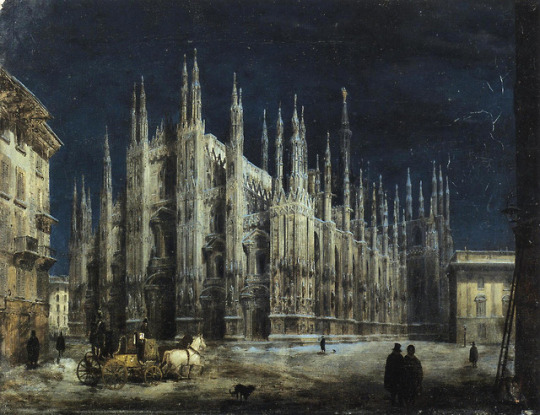
Notturno di Piazza del Duomo a Milano, created before 1866
by Angelo Inganni
34K notes
·
View notes
Text
being slavic and gay is so weird
7K notes
·
View notes

